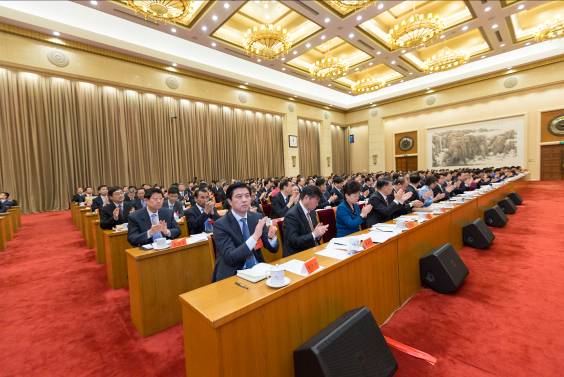China extends scope of the united front

The Communist Party of China Central Committee's Work Conference on United Front was held from May 18 to 20 in Beijing.
It was announced that overseas students, eminent figures in new media and private businesspeople will be integrated into the united front system of the Communist Party of China (CPC) at the CPC Central Committee's work conference held from May 18 to 20 in Beijing.
United front work is performed under the leadership of the CPC. Its main function is to manage relations with non-CPC elites. Occupying an important position on the CPC’s policy agenda, the united front has played a crucial role throughout the Party’s history. During the War of Resistance against Japanese Aggression, the united front built cooperation between the CPC and the Kuomintang. In modern times, it has also played a constructive role by contributing to national reform, opening up and modernization.
Stressing the significance of the united front is not only a lesson learned from historical experience, but also a requirement of reality, said Xie Chuntao, director of the Party History Teaching and Research Department at the Central Party School.
“Despite changes to the objectives, tasks and methods of current united front work, the united front is of growing importance,” he said.
Xie noted that due to the diversification of the economic structure and social classes, and increasingly complicated interest demands, there is a greater need than ever for the Party to consider a broad range of interests and build consensus, enhance cohesion, pool wisdom and concentrate power.
Han Dongxue, vice-dean of the School of Marxism at Tsinghua University, said the CPC must continue winning over allies in the current era to entrench its base and leading position.
At such a critical stage of reform and transformation, it is necessary to infuse new elements into the current united front system to lessen resistance for social progress and national prosperity, consolidate ethnic and social identities, support CPC leadership and contribute to socialism with Chinese characteristics, Han added.
A decade ago, members of emerging social strata fell into six categories, including pioneers and technicians in private-owned science and technology enterprises, managerial and technical staff in foreign companies, and self-employed entrepreneurs. However, the categories have been considerably broadened today, Xie said.
Effective united front work can rally and attract more young and middle-aged people who constitute the backbone of China’s future, Han said, adding that their participation can allow them to better understand the CPC’s political philosophy, identify with the Party’s political values and select successors to the cause of the CPC.
Mao Li is a reporter at the Chinese Social Sciences Today.
